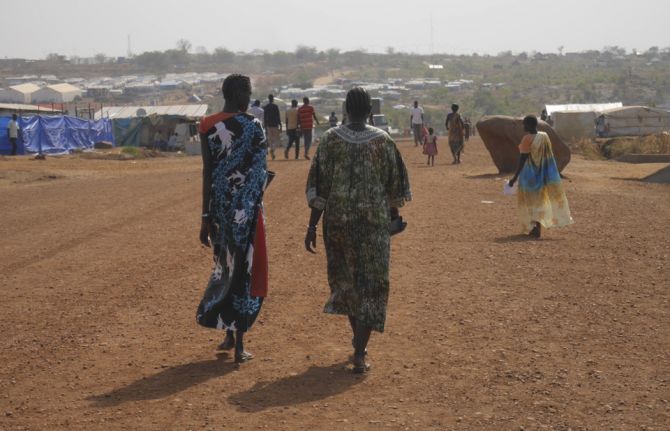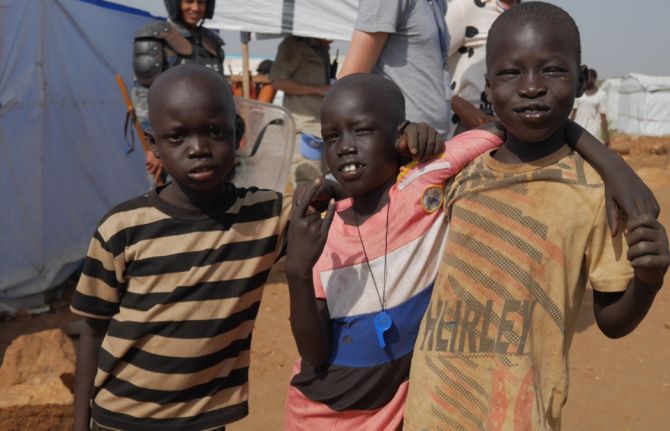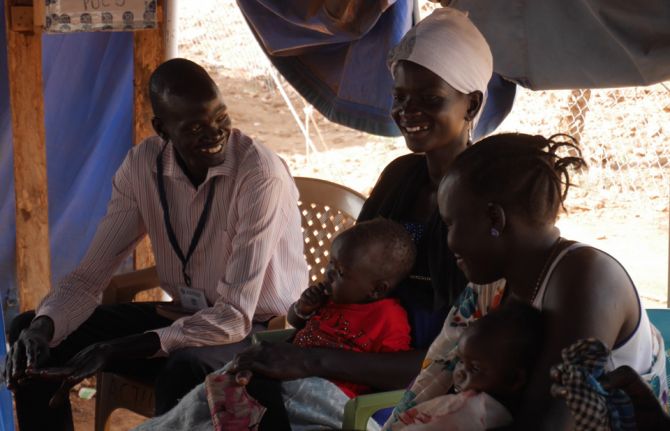



Feature Story
The incredible resilience of the people of South Sudan
30 March 2017
30 March 2017 30 March 2017Conflict has forced more than a quarter of the population of South Sudan to flee their homes, disrupted crop production and destroyed livestock. On 20 February 2017, famine was declared, which is already affecting 100 000 people, with a further 1 million people on the verge of famine. According to the United Nations Office for the Coordination of Humanitarian Affairs, some 1.9 million people have become internally displaced and another 1.6 million people have crossed the borders as refugees.
One of the regions most affected by the crisis is Equatoria, which is also the region with the highest burden of HIV in South Sudan. Around 90% of the 20 000 people on antiretroviral therapy in South Sudan live in Equatoria, where conflict and food insecurity are pushing people across the border to Uganda and the Democratic Republic of the Congo in their thousands daily, and out of reach of essential health services.
Many people living with HIV are among the refugees. Even when medicine is available, food insecurity is affecting their ability to take it regularly, as humanitarian agencies are struggling to meet the needs of hundreds of thousands of people with very little funding.
The resilience of people living with HIV affected by the crisis is incredible, even in the most difficult of situations. John* is a refugee in a camp near Ajumani in Uganda and a member of the South Sudan Network of People Living with HIV.
“A number of us were running out of antiretroviral medicines, and where we are settled there are no health facilities providing HIV treatment,” said John. “So we put together the little money we had and sent one of us back to Nimule in South Sudan to collect medicines for all of us. Luckily the doctor allowed and we now have some medicines, but when they finish, what do we do?”
Whether displaced or not, the main problem facing people living with HIV in South Sudan is food insecurity. People in towns and cities are also affected, with the majority of vulnerable families only eating one meal a day, and some going without food for days.
Stigma and discrimination is making the situation even more acute, as women living with HIV are often abandoned and left destitute because of their HIV status. Jane, a young mother of three living with HIV in Juba, the capital of South Sudan, found out her HIV status when she was pregnant with her third baby. Her husband and family abandoned her and her children, two of whom are also living with HIV. Jane does not have full-time employment and is struggling for her and her children to have just one meal a day.
“These days we have to insist on one pill a day, as we only eat once a day, if we get food that day, and we cannot take these medicines on an empty stomach. Others have stopped taking the medicines because they have no food,” she said.
Despite facing numerous challenges in her life, Jane volunteers as a “mentor mother” to support prevention of mother-to-child transmission of HIV services. She says of her work, “I like doing this, because we are many out there, but we fear discrimination if we disclose our HIV status. But with counselling, some of us are disclosing our status.”
In the 2016 United Nations Political Declaration on Ending AIDS, Member States committed to pursuing the continuity of HIV prevention, treatment, care and support and to providing a package of care for people living with HIV, tuberculosis and/or malaria in humanitarian emergencies and conflict settings, as displaced people and people affected by humanitarian emergencies face multiple challenges, including heightened HIV vulnerability, risk of treatment interruption and limited access to quality health care and nutritious food. UNAIDS is working with countries to ensure that the commitment is met.
* Names have been changed.



